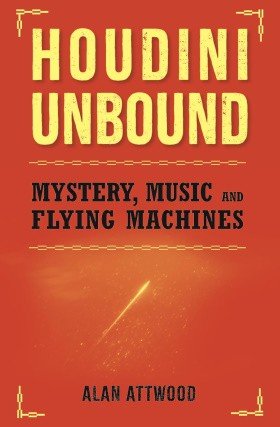Yet there are nights I am glad for the company of George H. Diamond.
Like Mr H., who always has dark smudges under his eyes, I have trouble with sleep. I wake under the canvas I share with the Voisin many hours before dawn. I lie still. But then I know I cannot rest. So I rise.
I find my boots and wrap a blanket around. In the dark paddock my feet crunch on dry grass and twigs. Something scuttles away before the sound of my water. I must be careful not to damp the blanket. Then I look up.
Never have I seen so many stars. And on the night after Mr H. first came, a star bigger than all others. Moving. Leaving a bright line across the sky.
I thought to call Ralfbanks, but decided no. He would make a joke—
You been at the absinth again, Oldboy?
Next day without wind Ralfbanks will fly the Wright machine. He is ready.
While I am still trying to stop the Voisin coughing.
21

THE comet also has competition.
Early in 1910, diamond miners in the Transvaal region of South Africa spot a spectacular moving light. It travels north, flaunting its brilliant arching tail, often visible to the naked eye in different parts of the world even when the sun is up. It is christened the Great Daylight Comet and effectively upstages Halley’s discovery, which arrives later and is less dramatic. Many who spot the flashy newcomer believe they have seen the long-distance time traveller making its scheduled return. Such confusion is understandable and means that on a Friday night, late in February, there are two comets vying for attention.
But not everyone is studying the heavens.
Harry’s focus is much lower: a few hundred feet above Plumpton’s Paddock, where he will transform himself from performer to aviator. On Sunday he hopes to fly; on this Friday night – even as Audran and Puccini return to the hotel – he is towelling himself down in his dressing-room after another successful exposition of the milk-can routine. The applause was sustained and generous. There were no technical hitches for him to discuss later with Kukol and Vickery. Rickards, who has joined him backstage, is well-satisfied with the week’s takings. Yet Bess finds him unusually agitated when she joins him after the show. He seems distracted; his welcoming kiss barely brushes her cheek.
‘Did you notice them, my sweet? The two who left early – near the front, to one side.’
‘Could have been house seats,’ Rickards interrupts. ‘Perhaps the pair you asked for yourself, Double?’
‘No,’ says Harry, feeling again the stab of the young swimmer’s blithe indifference. ‘I fear those seats stayed empty.’
‘Empty? Might as well give away pound notes outside,’ Rickards mutters.
‘Things happen,’ Bess says. ‘Illness. Accidents. There’s no telling why some tickets aren’t used, or why people must go. You had to leave the Malwa’s costume ball yourself because of seasickness—’
Harry has no desire to be reminded of this. Especially with Rickards there.
‘Yes, yes. But to walk away, knowing the climax of the show is near. I noticed them. Vickery too. At a time when it is critical all is in order …’
Bess is relieved when Rickards interrupts, piling on the praise.
‘Nobody could tell if you were distracted, Double. You pulled it off again. That’s the professional in you. I’ve seen all the pretenders – Grossi the Mind Reader, Hassan Hindoo the Indian Magic Man, Carter the Great … Each one clutching on to your own coat-tails. All of them lower-bill acts. Not in your league, Double.’
Rubbing at his damp hair with a towel, Harry seems slightly mollified.
Still hoping to move the conversation away from absentees, Bess picks up a jar with a garish label on the far side of Harry’s dressing-table.
‘“Zam-Buk”,’ she says, reading the label. ‘What is this?’
‘An ointment, Ma’am,’ says Rickards. ‘Liniment. Regularly advertised in the papers.’
‘May I?’ Harry takes the jar and examines the label. ‘I’ve never heard of Zam-Buk. Certainly never used it. What is this doing here, Rickards?’
‘Glad you asked. I spy a rolled-gold commercial opportunity here.’
‘How so?’
‘Advertisements, Double. They’re always looking for endorsements.’
He adopts his carney’s voice. ‘“A Melbourne Lady Says Zam-Buk is a Boon to All Sufferers of Tender Feet”. They’d pay very handsomely for something with your name on it. Something like this: “My wrists are often lacerated by the handcuffs. Nothing has ever given me such remarkable relief as Zam-Buk. Sincerely yours, Harry Houdini, The Prison Breaker.”’
‘I’d rather “Escape Artist”,’ Harry responds. ‘Or “Great Mystifier”.’ But otherwise he seems content with Rickards’ script. He unscrews the lid of the jar to examine the contents, then recoils.
‘The smell!’ he says. ‘Pungent. Making my eyes water already. Like an evil concoction of turpentine and vinegar. But you say it is effective?’
‘I say nothing,’ Rickards replies. ‘I’d just write the adverts. Imagine this: “Zam-Buk: Endorsed by the First Man to Fly in Australia!”’
Harry indicates his approval with a nod.
‘Precisely! People always want more. Every performance must seem more incredible than anything that’s come before. Every claim more impressive than one made last week.’
He has replaced the lid, but regards the liniment jar with renewed respect.
‘How are your plans progressing there?’ Rickards asks. ‘All set to fly?’
Bess notices her husband’s lips tighten. The promoter has overstepped.

























